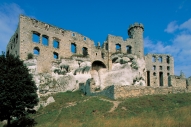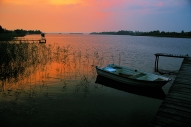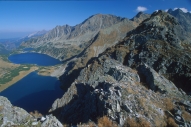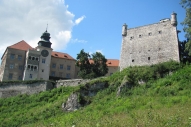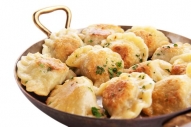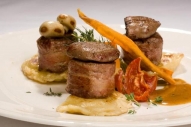31-153 Krakow
Poland
Telephone: +48 12 633-11-34
Fax: +48 12 633-11-34
Emergency +48 662 013 213
About Poland
General information:Flag:
Political system: Republic
Area: 312.000 sq. km (120.728 sq. miles)
Location: Central Europe; Poland shares borders to the east with Lithuania, Belarus and Ukraine, to the south with Czech Republic and Slovakia and to the west with Germany. Its northern border runs along the Baltic Sea coast, which provides about 500 km ( 300 miles) of sandy beaches, steep clifts and dunes.
Population: 38.200.000 inhabitants
Language: Polish is the official language. Foreigners can easily communicate in English, German and Russian, too.
Currency: The Zloty (PLN) is official currency in Poland. 1 PLN is equal to 100 groszy. Coins in circulation: 1,2,5 zloty and 1,2,5,10,20 groszy. Banknotes: 10,20,50,100,200 zloty.Foreign currency can be easily exchanged at all border crossing points, banks, exchange bureaux called “Kantor” and hotel reception. The import of foreign currency is unlimited, provided declared upon entering Poland. The export of foreign currency is limited to the amount declared on arrival. The import and export of Polish currency is prohibited.
Capital city: Warsaw
Major cities: Krakow, Gdansk, Wroclaw, Poznan, Lodz, Katowice, Szczecin, Lublin.
Time: GMT +1, Winter time GMT +2
Climate: Poland has a temperate climate, with warm summers, sunny autumns and cold winters. Snow covers the southern area from December to March.
Religion: More than 90% of Roman Catholics
Electricity: Main voltage is 220V/230V, all sockets take small round two-pin plugs. An adaptor is required for 110V electrical equipment.
Telephones: Direct connections with almost all countries. The dialing code to Poland is + 48, Warsaw +48/22, Cracow +48/12, Gdańsk +48/58, Wrocław +48/71.
Emergency phone numbers: Police 997, Ambulance 999, Fire 998.
Customs regulation: Customs rules and procedures are similar to those preveiling in a majority of EU countries.
Public holidays: New Years’s Day 1st January, Easter Sunday and Monday (movable date), Labour Day 1st May, Constitution Day 3rd May, Corpus Christi (Thursday- movable date), Feast of the Assumption 15th August, All Saint’s Day
1st November, National Independent Day 11th November, Christmas Holidays 25th and 26th December.
Credit cards: VISA, American Express, Mastercard, JCB and Dinners Club are accepted in Poland.
Insurance: Visitors from abroad are recommended to take out insurance before travelling to Poland.
Shopping:
Shops are generally opened from 7.00am-6.00pm Mondays to Fridays and for shorter hours at weekends. Supermarkets and department stores open 9.00am-9.00pm Mondays to Saturdays, and 9.00am-6.00pm on Sundays.
Special purchases include: glass and crystal,handwoven rugs, silverware, handmade jewellery with amber, woodcarvings.
Eating and drinking:
Poland has a distinctive cuisinewith typical ingrediends being dill, marjoram, caraway seeds, wild mushrooms and sour cream, which is frequently added to soups, sauces and braised meats.....
The most popular national dishes are:
Bigos – made with sauerkraut, fresh cabbage, onions and variety of meat.
Pierogi – dumplings filled with meat, mushrooms and cabbage or cottage cheese and patatoes.
Goląbki – rolled cabbage leaves stuffed with rice, onions and beef, served in tomato sauce.
Barszcz - beetroot soup, best is served with sourcream.
Vodka is the national drink and must be drunk chilled. Wyborowa is considered the best srandard vodka, but there are many flavoured varieties as Zubrowka (bison grass), Sliwowica (prune) or Pieprzowka.
Beer - Polish beers are very tasty and the most popular is Zywiec, a fairly strong lager type beer.
Tipping: 10% is customary in restaurants and cafes. Tipping in self-service resturant is not expected.



